auraslip
10 MW
- Joined
- Mar 5, 2010
- Messages
- 3,535
The EV revolution has blown past America, and left us in a dust of patent warfare.
The electric motor is in the vibrator of your cell phone, the compressor of your refrigerator, automatic doors, and the fans of disk drives of the computer you're reading this from. To say it's reliable and proven is an understatement. For years we have been told that electric vehicles were unfeasible. We were told that battery technology hasn't reached the level needed to power such vehicles. But since 2008 Chinese battery and automaker BYD has been selling their F3DM plugin hybrid. And with over 5.5 million electric bikes being produced every year by some 1,400 Chinese manufacturers, I think it's time we need to reevaluate the feasibility of EVs.
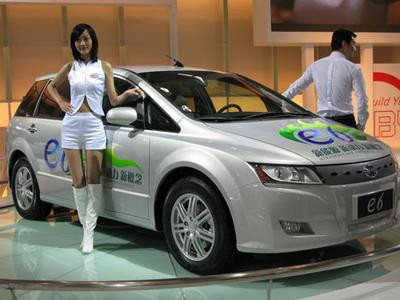

The BYD F3DM and a British patrolman on his ebike.
Who held back the electric car?
[youtube]_ZI_aEalijE[/youtube]
The Stonecutters, duh.
On the eve of it's 2003 cancellation date General motors executives, citing low consumer demand and high production costs, would call the EV-1 a billion dollar failure. However only 3 years later then GM Chairman and CEO Rick Wagoner stated that his worst decision during his tenure at GM was "axing the EV-1 electric-car program and not putting the right resources into hybrids." 'If we could turn back the hands of time we could have had the Chevy Volt 10 years earlier." GMs short sighted cancellation of their electric vehicle program is the subject of a documentary titled "who killed the electric car?"
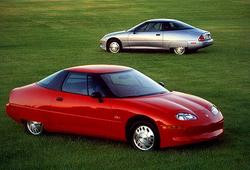
The EV-1 grazing in a meadow.
It may be a conspiracy but it is no theory that Ovionics, the company that controlled the NIMH technology that would power the EV-1, was sold to Texaco in 2001. Texaco was then acquired by Chevron. That same year they filed suit against battery makers Panasonic that succeeded in restricting the sale of NIMH batteries used in hybrids and electric vehicles.. Not content at just stopping other companies from selling the batteries needed to power the electric vehicle revolution, Chevron simply stopped selling the batteries. In October 2007 Innovative Transportation Systems filed suit against Chevron for refusing to fill a large, previously agreed-upon order for large-format NiMH batteries to be used in the Innovan electric vehicle. In August 2008, Mercedes-Benz sued Chevron for again refusing to fill a large, previously agreed-upon order for NiMH batteries. One company with vested interests effectively held off electric cars for a decade.
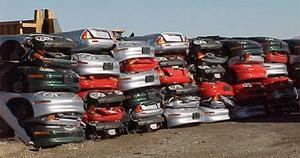
GM ominously had every EV-1 crushed.
Cheap cells fuel Chinese change.
"A blend of necessity and opportunity kick-started China's first electric-bike" said Zhang Min Wei of Shanghai Cranes Electric Vehicle Co. "We released 100 beta bikes in 1995. They were of very poor quality and broke down often, but people thought they were a great joy to ride and very handy for carrying packages." When Shanghai banned sales of gas scooters (and their polluting two-stroke engines) in 1996, Cranes was spun out of an R&D incubator to fill the market void. Within two years they were selling 50,000 bikes a year. But because of China's weak protection of intellectual property, the innovations made by companies like Cranes spread quickly, and copycat competitors started popping up all over China. It's success is easy to understand; At 1500 to 3000 yuan (US $180 to $360), an electric bike is buyable at a small fraction of the cost of an automobile. Their is no need for gas, expensive parking, license, or government registration. Nowadays these bikes are all powered by the latest generation of battery technology called lifepo4.

Lithium iron phosphate is like all next generation batteries: superior in every way. Lighter, longer lasting, safer, and most importantly cheaper than nickle based batteries. These batteries have been mass produced in China for over five years, but are just now trickling on to our shores. DIYers are forced to order 'duct tape' batteries of dubious quality and legality off the Asian gray market or take apart Dewalt drill battery packs to make EV batteries. If, like in china, small American manufacturers could mass produce the lifepo4 cells, a home brew EV industry could pop up over night. However small companies cannot afford to tangle with expensive patent lawsuits. Companies like A123, Panasonic, Toshiba, and NNT are engaged in a patent war over lifepo4, and the dust has yet to settle. One thing is certain though; the inventor of lifepo4, University of Texas Austin professor John Bannister Goodenough, lost the exclusive rights to the batteries chemistry. A far departure from Chevrons gorilla like grip on NIMH.
Who ever has the gold makes the rules. Who ever spends the most on lawyers can bend the law to their will. But golds value is artificial. It is an idea we applied to it based on its natural rarity. In the modern world another type of gold moves the world. Black gold. Texas tea. With out oil all of our wealth, technology, and military might is meaningless and motionless. Whoever controls the oil controls the world. This was the unstated theme we hummed under our breaths as we marched in imperial boots through Iraq and Afghanistan. But even as it is still the best and irreplaceable for the foreseeable future, it is not the only and will growningly be less the means of transport. The time will come when it will no longer be the measure of wealth. China laughs as it tears apart our intellectual property laws and throws the scraps in the wind. Pollinating it's people with the technology to make their own gold. To make batteries. To grow their own means of transportation.
What is the future of transportation?
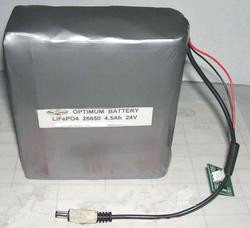
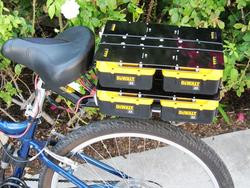
Duct tape batteries and Dewalt drill packs
or
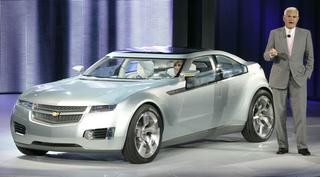
The Chevy Volt
While we wait for GM to create the future of the American transportation system; I'd like to take a minute and reflect on Americas entrepreneurial history. The Wright brothers invented the airplane in a barn, Steve Jobs created the personal computer in his garage, Larry Page and Sergey Brin built Google as college students living off of credit cards . Some of the greatest inventions we as Americans can put our name on were created by hobbyists and tinkerers, but now it seems the power of creation has been taken from us. The very laws that are supposed to promote innovation are instead stifling it. Patent laws meant to protect inventors are instead being used to protect investors. Companies with vested interests in stalling progress are controlling the means of transportation.
The searing of irony this is that our free market system has us waiting on corporations to develop the next big thing, while small businessmen in the communist state of China already have.
The electric motor is in the vibrator of your cell phone, the compressor of your refrigerator, automatic doors, and the fans of disk drives of the computer you're reading this from. To say it's reliable and proven is an understatement. For years we have been told that electric vehicles were unfeasible. We were told that battery technology hasn't reached the level needed to power such vehicles. But since 2008 Chinese battery and automaker BYD has been selling their F3DM plugin hybrid. And with over 5.5 million electric bikes being produced every year by some 1,400 Chinese manufacturers, I think it's time we need to reevaluate the feasibility of EVs.


The BYD F3DM and a British patrolman on his ebike.
Who held back the electric car?
[youtube]_ZI_aEalijE[/youtube]
The Stonecutters, duh.
On the eve of it's 2003 cancellation date General motors executives, citing low consumer demand and high production costs, would call the EV-1 a billion dollar failure. However only 3 years later then GM Chairman and CEO Rick Wagoner stated that his worst decision during his tenure at GM was "axing the EV-1 electric-car program and not putting the right resources into hybrids." 'If we could turn back the hands of time we could have had the Chevy Volt 10 years earlier." GMs short sighted cancellation of their electric vehicle program is the subject of a documentary titled "who killed the electric car?"

The EV-1 grazing in a meadow.
It may be a conspiracy but it is no theory that Ovionics, the company that controlled the NIMH technology that would power the EV-1, was sold to Texaco in 2001. Texaco was then acquired by Chevron. That same year they filed suit against battery makers Panasonic that succeeded in restricting the sale of NIMH batteries used in hybrids and electric vehicles.. Not content at just stopping other companies from selling the batteries needed to power the electric vehicle revolution, Chevron simply stopped selling the batteries. In October 2007 Innovative Transportation Systems filed suit against Chevron for refusing to fill a large, previously agreed-upon order for large-format NiMH batteries to be used in the Innovan electric vehicle. In August 2008, Mercedes-Benz sued Chevron for again refusing to fill a large, previously agreed-upon order for NiMH batteries. One company with vested interests effectively held off electric cars for a decade.

GM ominously had every EV-1 crushed.
Cheap cells fuel Chinese change.
"A blend of necessity and opportunity kick-started China's first electric-bike" said Zhang Min Wei of Shanghai Cranes Electric Vehicle Co. "We released 100 beta bikes in 1995. They were of very poor quality and broke down often, but people thought they were a great joy to ride and very handy for carrying packages." When Shanghai banned sales of gas scooters (and their polluting two-stroke engines) in 1996, Cranes was spun out of an R&D incubator to fill the market void. Within two years they were selling 50,000 bikes a year. But because of China's weak protection of intellectual property, the innovations made by companies like Cranes spread quickly, and copycat competitors started popping up all over China. It's success is easy to understand; At 1500 to 3000 yuan (US $180 to $360), an electric bike is buyable at a small fraction of the cost of an automobile. Their is no need for gas, expensive parking, license, or government registration. Nowadays these bikes are all powered by the latest generation of battery technology called lifepo4.

Lithium iron phosphate is like all next generation batteries: superior in every way. Lighter, longer lasting, safer, and most importantly cheaper than nickle based batteries. These batteries have been mass produced in China for over five years, but are just now trickling on to our shores. DIYers are forced to order 'duct tape' batteries of dubious quality and legality off the Asian gray market or take apart Dewalt drill battery packs to make EV batteries. If, like in china, small American manufacturers could mass produce the lifepo4 cells, a home brew EV industry could pop up over night. However small companies cannot afford to tangle with expensive patent lawsuits. Companies like A123, Panasonic, Toshiba, and NNT are engaged in a patent war over lifepo4, and the dust has yet to settle. One thing is certain though; the inventor of lifepo4, University of Texas Austin professor John Bannister Goodenough, lost the exclusive rights to the batteries chemistry. A far departure from Chevrons gorilla like grip on NIMH.
Who ever has the gold makes the rules. Who ever spends the most on lawyers can bend the law to their will. But golds value is artificial. It is an idea we applied to it based on its natural rarity. In the modern world another type of gold moves the world. Black gold. Texas tea. With out oil all of our wealth, technology, and military might is meaningless and motionless. Whoever controls the oil controls the world. This was the unstated theme we hummed under our breaths as we marched in imperial boots through Iraq and Afghanistan. But even as it is still the best and irreplaceable for the foreseeable future, it is not the only and will growningly be less the means of transport. The time will come when it will no longer be the measure of wealth. China laughs as it tears apart our intellectual property laws and throws the scraps in the wind. Pollinating it's people with the technology to make their own gold. To make batteries. To grow their own means of transportation.
What is the future of transportation?


Duct tape batteries and Dewalt drill packs
or

The Chevy Volt
While we wait for GM to create the future of the American transportation system; I'd like to take a minute and reflect on Americas entrepreneurial history. The Wright brothers invented the airplane in a barn, Steve Jobs created the personal computer in his garage, Larry Page and Sergey Brin built Google as college students living off of credit cards . Some of the greatest inventions we as Americans can put our name on were created by hobbyists and tinkerers, but now it seems the power of creation has been taken from us. The very laws that are supposed to promote innovation are instead stifling it. Patent laws meant to protect inventors are instead being used to protect investors. Companies with vested interests in stalling progress are controlling the means of transportation.
The searing of irony this is that our free market system has us waiting on corporations to develop the next big thing, while small businessmen in the communist state of China already have.

